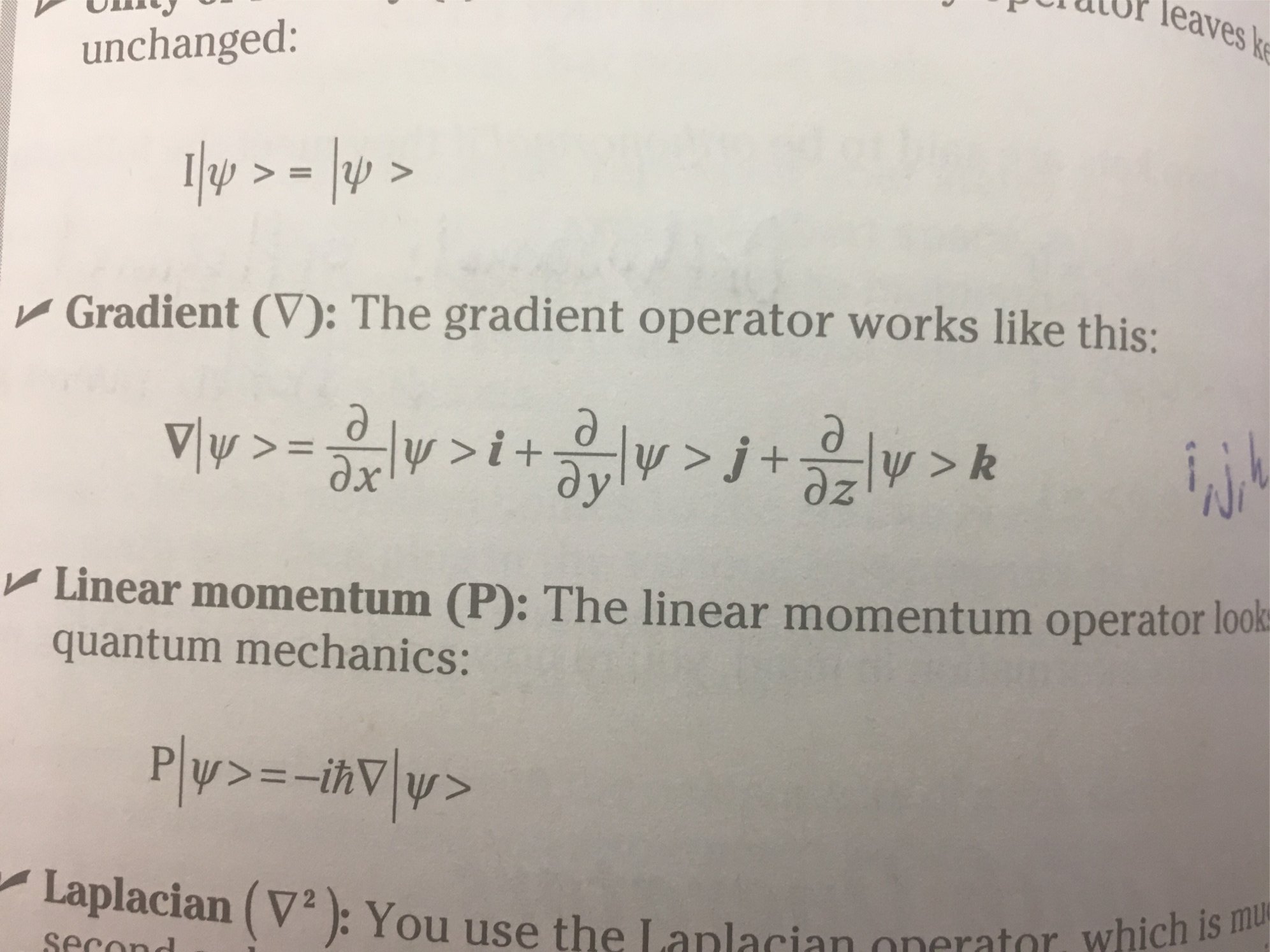I'm reading from "Quantum Physics for Dummies", by Steven Holzner. In chapter two, entitled "Entering the Matrix: Welcome to State Vectors", the author introduces the notation for a gradient of a wave function.
I understand all of the complement, but what confuses me is the use of the relationship operators, what do they signify in this context? How can you compare a partial derivative with a basis vector?

